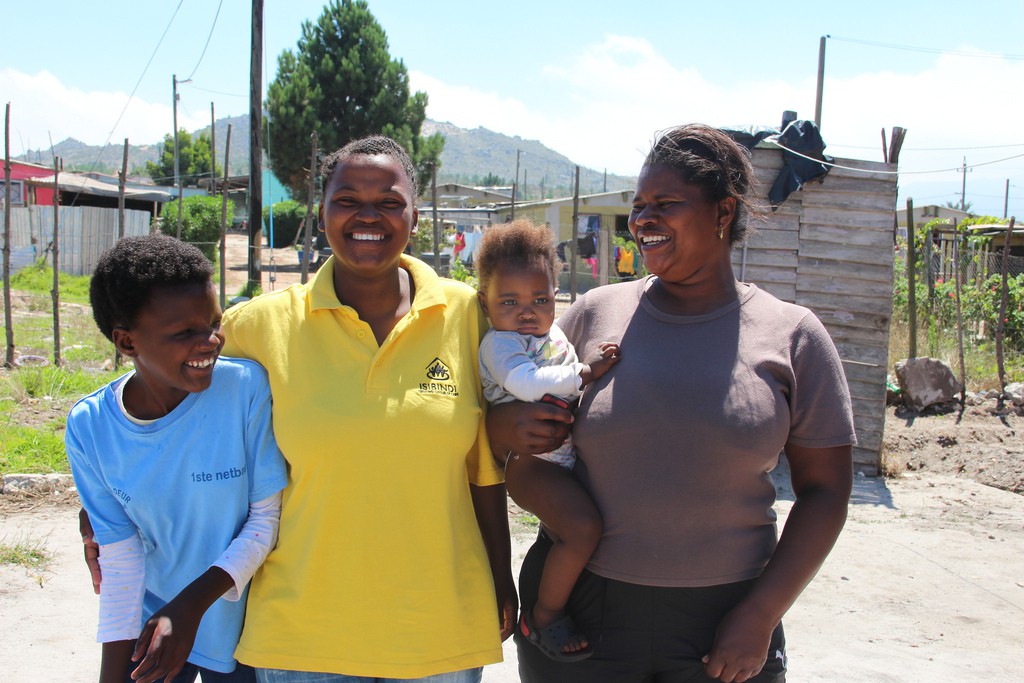Guest blog, written by Sarah Dunn, Head of DfID Southern Africa.
On National Women’s Day, I’m reminded of how many women leaders I have as colleagues, including the British High Commissioner, Dame Nicola Brewer and her successor Judith MacGregor. In a recent meeting with South African colleagues, our counterpart commented on how “empowered” our delegation was!
South Africa has a host of women in senior domestic and international positions, notably Foreign Minister Maite Nkoana-Mashabane, Chairperson of the African Union Commission, Nkosazana Dlamini-Zuma and former Deputy President Phumzile Mlambo-Ngcuka who has been recently appointed as Head of United Nations (UN) Women.
This is impressive evidence of progress and signal of intent for women’s empowerment and gender equality in South Africa. Today, South Africa commemorates its National Women’s Day under the theme:
‘A Centenary of Working Together towards Sustainable Women Empowerment and Gender Equality’.
Over the years, the day has been used to pay tribute to the 20,000 women who marched to the Union Building on 9 August 1956 protesting against discriminatory pass laws. As the old adage says, “you strike a woman, you strike a rock”, a phrase which has come to represent women’s courage and strength in South Africa. This was true in 1956 and it remains true in 2013.
This year’s commemoration has a welcome focus on the role of women in achieving democracy in South Africa. However, in addition to their struggles faced during apartheid, women continue to face other forms of struggles including: gender-based violence, patriarchy, and poverty, almost 20 years into democracy.
We all know that women’s rights are human rights, enshrined in the South African Constitution and the UN’s Universal Declaration of Human Rights.
As Jessie Duarte, Deputy Secretary-general of the Africa National Congress (ANC), noted in her column last weekend, “women lead with integrity and great courage”. But, the space and opportunity to do so in some areas is restricted.
I heard Chelsea Clinton this week in Johannesburg say that female farmers in Africa, who do most of the agricultural work in the rural areas on the continent, could significantly reduce hunger and poverty, if only they were given access to new technologies, seeds and fertilisers. This is the dramatic change that women can lead, given the opportunity. Very appropriately, the focus for South Africa’s Women’s Day in 2013 will also be on programmes and projects to accelerate women’s access to land.
To make real progress on this year’s Women’s Day theme in South Africa, we all need to work together to accelerate progress towards the objective of women’s empowerment and gender equality.
Improving the lives of girls and women is a priority for the United Kingdom Department for International Development (DFID) in South Africa – through targeted and broader programmes tackling the prevention of gender-based violence, the reduction of maternal mortality, helping women farmers to increase production, and ensuring that new jobs created benefit both women and men.
At an international level, our Prime Minister, Foreign Secretary, and DFID’s Secretary of State all emphasise the importance of gender equality, and particularly on preventing sexual violence against women.
At a global level, the evidence shows that investing in girls and women is the smart thing to do. By unleashing their potential, we see incredible returns for girls and women themselves, for their families and communities, and for their economies and countries. Countries with higher civic engagement and stronger attitudes towards equality and fairness towards women have significantly higher levels of per capita income in the long run.
As South Africa celebrates National Women’s Day, there will also be parallel events to mark the day in the United Kingdom. The South African Chamber of Commerce will be hosting a panel discussion with high profile speakers in London. The topic will be “Addressing the gender balance agenda and its impact on the global economy”.
So, my congratulations to South Africa on its 57th National Women’s Day. It’s a real opportunity to celebrate the achievements and contribution to society of the leading women mentioned above, and others like Barbara Hogan, Naledi Pandor, Thuli Madonsela, Lindiwe Sisulu, Lindiwe Zulu, Helen Zille, Mamphela Ramphele, Thandi Orleyn, Vuyiseka Dubula, Redi Thlabi, Cheryl Carolus, Natalie du Toit and many many others.
They all highlight the critical role for such inspiring and high powered women to have a meaningful impact across all spheres of politics, business, media, sport etc. Long may it continue for generations to come!
And whilst its fantastic to have a day that marks women, the agenda is clearly more important than just today. It highlights the need to focus on ensuring women are secure, have equal opportunity and are really empowered to deliver transformative effects, that the 1956 March shows is possible to achieve.

